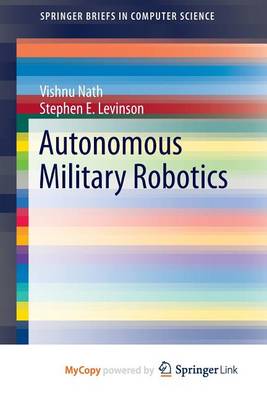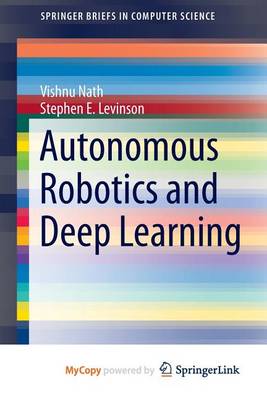SpringerBriefs in Computer Science
2 total works
This SpringerBrief reveals the latest techniques in computer vision and machine learning on robots that are designed as accurate and efficient military snipers. Militaries around the world are investigating this technology to simplify the time, cost and safety measures necessary for training human snipers. These robots are developed by combining crucial aspects of computer science research areas including image processing, robotic kinematics and learning algorithms. The authors explain how a new humanoid robot, the iCub, uses high-speed cameras and computer vision algorithms to track the object that has been classified as a target. The robot adjusts its arm and the gun muzzle for maximum accuracy, due to a neural model that includes the parameters of its joint angles, the velocity of the bullet and the approximate distance of the target. A thorough literature review provides helpful context for the experiments. Of practical interest to military forces around the world, this brief is designed for professionals and researchers working in military robotics. It will also be useful for advanced level computer science students focused on computer vision, AI and machine learning issues.
This Springer Brief examines the combination of computer vision techniques and machine learning algorithms necessary for humanoid robots to develop "true consciousness." It illustrates the critical first step towards reaching "deep learning," long considered the holy grail for machine learning scientists worldwide. Using the example of the iCub, a humanoid robot which learns to solve 3D mazes, the book explores the challenges to create a robot that can perceive its own surroundings. Rather than relying solely on human programming, the robot uses physical touch to develop a neural map of its environment and learns to change the environment for its own benefit. These techniques allow the iCub to accurately solve any maze, if a solution exists, within a few iterations. With clear analysis of the iCub experiments and its results, this Springer Brief is ideal for advanced level students, researchers and professionals focused on computer vision, AI and machine learning.

